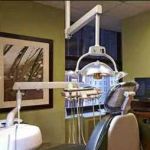Oral Hygiene Habits for a Healthier Smile: Tips and Best Practices
- 1. Why Oral Hygiene Habits Are Crucial for Your Health
- 2. Core Habits for Maintaining Good Oral Hygiene
- 3. Brushing and Flossing Techniques for a Perfect Smile
- 4. Establishing a Daily Oral Care Routine
- 5. Common Mistakes in Oral Hygiene Habits and How to Avoid Them
- 6. Expert Tips for Superior Oral Hygiene Practices
1. Why Oral Hygiene Habits Are Crucial for Your Health
Oral hygiene is not just about having fresh breath or a bright smile; it’s a key part of overall health. Poor oral hygiene can lead to a range of serious health problems, including gum disease, tooth decay, and even heart disease. Research has shown that the bacteria in your mouth can enter the bloodstream and increase the risk of conditions like stroke and heart disease. That’s why maintaining good oral hygiene habits is crucial for both your dental health and your overall well-being.
In this article, we’ll explore the best oral hygiene habits to follow, how to incorporate them into your daily routine, and how small changes can make a big impact on your dental health.
2. Core Habits for Maintaining Good Oral Hygiene
When it comes to oral hygiene habits, there are several core practices that form the foundation of good dental health. These habits are easy to adopt, and when followed consistently, they can help prevent cavities, gum disease, and bad breath. The core habits include:
- Brushing twice a day: Brushing your teeth at least twice a day, once in the morning and once before bed, is essential. Make sure to brush for at least two minutes each time, using fluoride toothpaste to protect your teeth.
- Flossing daily: Flossing is essential for removing food particles and plaque from between your teeth and along the gumline. Regular flossing helps to prevent gum disease and cavities in hard-to-reach areas.
- Using mouthwash: Rinsing with mouthwash after brushing and flossing can help kill bacteria, freshen your breath, and reduce the risk of gum disease.
By integrating these habits into your daily routine, you can ensure your mouth stays clean and healthy.
3. Brushing and Flossing Techniques for a Perfect Smile
While brushing and flossing are essential habits, the way you do them can make a big difference. Many people unknowingly practice poor brushing and flossing techniques, which can reduce the effectiveness of their oral hygiene routine.
Here are some tips for brushing and flossing correctly:
- Brushing: Hold your toothbrush at a 45-degree angle to your gums and use gentle, circular motions. Avoid brushing too hard, as this can damage your gums and enamel. Be sure to brush all surfaces of each tooth, including the front, back, and chewing surfaces.
- Flossing: Use about 18 inches of floss and wind it around your fingers. Gently slide the floss between your teeth and move it in a “C” shape to clean the sides of your teeth and below the gumline. Don’t snap the floss into your gums.
Proper brushing and flossing techniques will ensure that you’re removing plaque and food particles effectively, leading to healthier teeth and gums.
4. Establishing a Daily Oral Care Routine
To achieve optimal oral hygiene, it’s important to establish a consistent daily routine. A good oral care routine involves more than just brushing and flossing – it includes a series of steps that help maintain the health of your teeth and gums throughout the day. Here’s a suggested routine:
- Morning: Start your day by brushing your teeth with fluoride toothpaste, followed by flossing. If you have time, rinse with mouthwash for added protection against bacteria.
- During the day: Drink plenty of water to keep your mouth hydrated. Chewing sugar-free gum can also help stimulate saliva production, which naturally cleans your teeth.
- Evening: Before bed, brush your teeth thoroughly, floss, and rinse with mouthwash. This ensures that you’re cleaning away food particles and plaque before going to sleep.
By following a daily oral care routine, you’ll create long-lasting habits that help keep your smile healthy.
5. Common Mistakes in Oral Hygiene Habits and How to Avoid Them
Even with the best intentions, it’s easy to fall into certain oral hygiene traps. Here are some common mistakes and tips on how to avoid them:
- Brushing too hard: Brushing too hard can cause gum recession and enamel erosion. Always use a soft-bristled toothbrush and gentle strokes.
- Skipping flossing: Flossing is just as important as brushing. It removes plaque and debris from places your toothbrush can’t reach. Don’t skip this step!
- Not replacing your toothbrush: A worn-out toothbrush is less effective at cleaning your teeth. Replace your toothbrush or toothbrush head every 3-4 months.
By avoiding these mistakes and following proper techniques, you can greatly improve your oral hygiene and prevent potential dental problems.
6. Expert Tips for Superior Oral Hygiene Practices
For a truly exceptional smile, consider these expert tips for taking your oral hygiene to the next level:
- Consider using an electric toothbrush: An electric toothbrush can make brushing easier and more effective, especially for those who have difficulty brushing thoroughly.
- Drink less sugary beverages: Sugary drinks can contribute to plaque buildup and cavities. Opt for water or unsweetened beverages to protect your teeth.
- Regular dental checkups: Don’t forget to visit your dentist regularly for professional cleanings and checkups. Early detection of dental issues can save you time and money in the long run.
Incorporating these expert tips into your routine will help you maintain excellent oral health for years to come.
To take your oral hygiene habits to the next level and learn more about proper oral care, visit Dentistry Toothtruth for professional advice, tips, and resources.







 Infuse Dental4.0 (292 review)
Infuse Dental4.0 (292 review) Doctor Lenz DDS Gentle Family Restorative Dentistry5.0 (4 review)
Doctor Lenz DDS Gentle Family Restorative Dentistry5.0 (4 review) Corsi Dental Associates4.0 (789 review)
Corsi Dental Associates4.0 (789 review) Excel Dental, Orthodontics & Implant Center4.0 (34 review)
Excel Dental, Orthodontics & Implant Center4.0 (34 review) Dental Smiles of West Chicago4.0 (124 review)
Dental Smiles of West Chicago4.0 (124 review) Coast Dental4.0 (545 review)
Coast Dental4.0 (545 review) The Importance of Oral Health Education During Pregnancy for a Healthy Pregnancy
The Importance of Oral Health Education During Pregnancy for a Healthy Pregnancy Best Tips for Brushing Your Teeth Properly for Healthy Gums: Essential Techniques for Oral Health
Best Tips for Brushing Your Teeth Properly for Healthy Gums: Essential Techniques for Oral Health Why Skipping Dental Checkups Can Lead to Bigger Oral Health Problems
Why Skipping Dental Checkups Can Lead to Bigger Oral Health Problems Advantages of Porcelain Dental Restorations
Advantages of Porcelain Dental Restorations How Can Diabetes Cause Tooth and Gum Problems? Preventing and Managing Oral Health Issues
How Can Diabetes Cause Tooth and Gum Problems? Preventing and Managing Oral Health Issues Healthy Habits for Promoting Good Oral Health and Hygiene: Tips for a Healthy Smile
Healthy Habits for Promoting Good Oral Health and Hygiene: Tips for a Healthy Smile